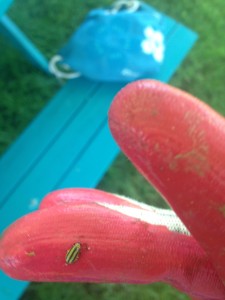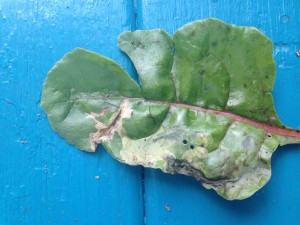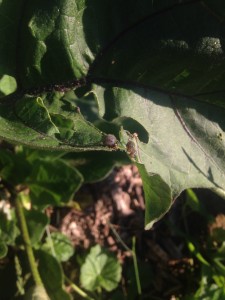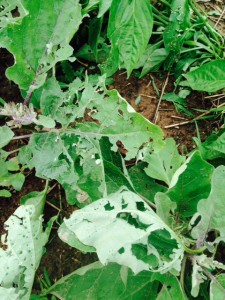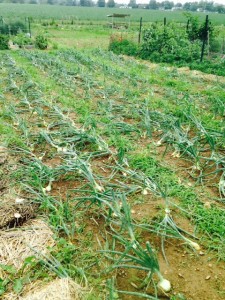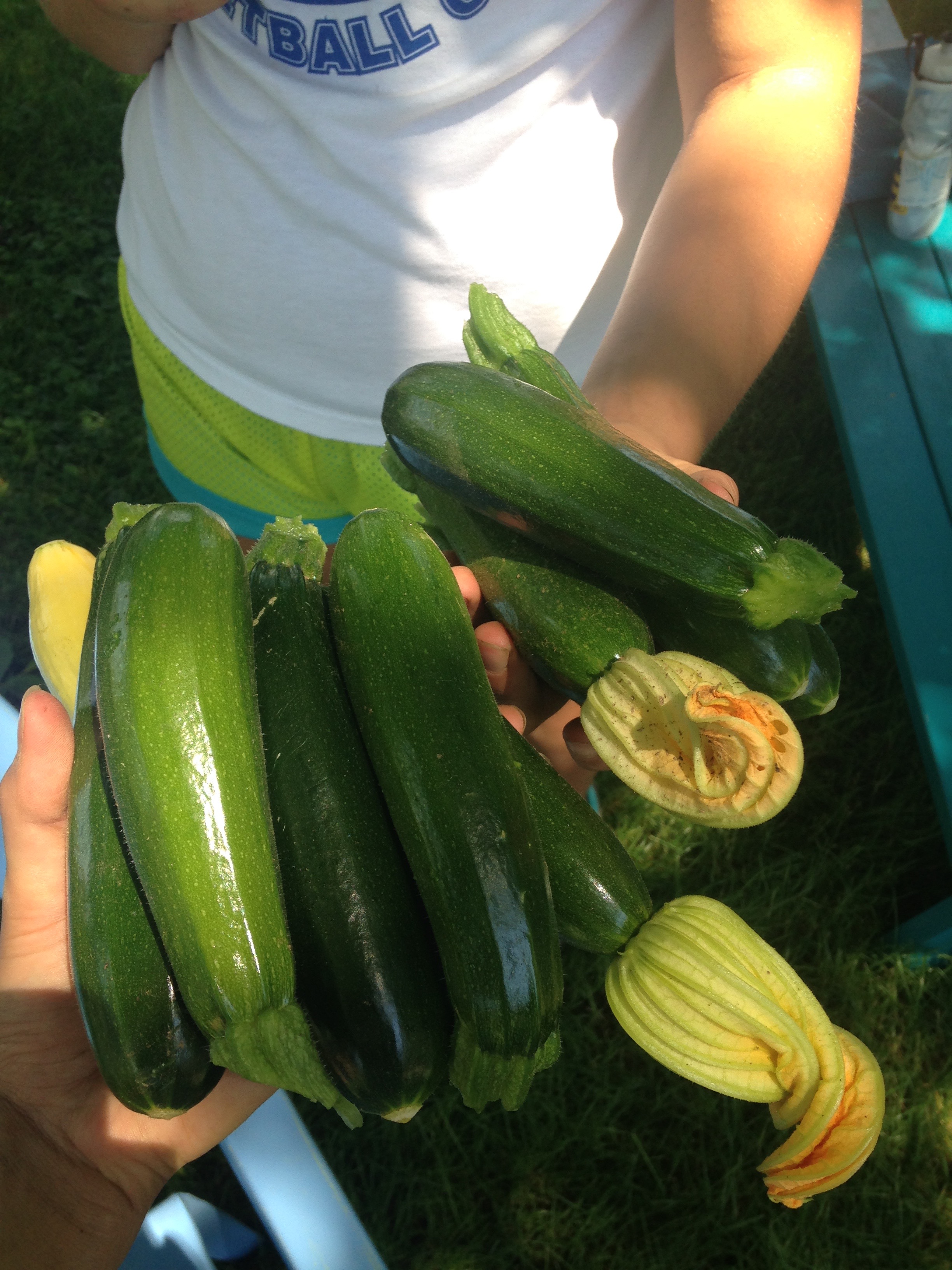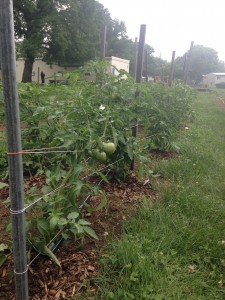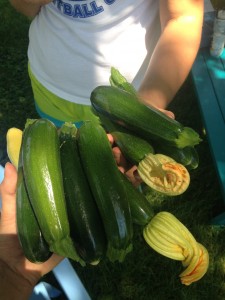When we consume food, we often forget about all of the work that goes into ensuring it’s growth and quality. This past week has certainly been an eye-opening experience in terms of understanding the setbacks, worries, and difficulties of small-scale organic farming. You cannot rely on pesticides to kill the pests destroying your crops and you cannot rely on crop-insurance to over your losses.
At the Urban Farm, Rachel and I have begun scouting for bugs in the morning. Particularly, we search for leaf-miners in the swiss chard, eggplant beetles (the nastiest to squish), and cucumber/squash beetles. We have become masters of identifying these pests in their various stages of life – from egg to adult. These bugs feast on the leaves of plants. Leaf miners actually dig their way inside of the leaf and kill the leaf from the inside out.
During a tornado warning and hail storm on June 30, LaFarm suffered some serious damage. Crops clearly displayed hail and wind damage in the form of holes in leaves, bruised produce, and toppled plants. On Thursday morning we had to harvest many onions that were too severely damaged to remain in the ground. As a result, we harvested a lot of small onions. This will definitely decrease the amount of produce that will be available throughout the summer. We harvested the onions that had toppled greens and were clearly damaged beyond recovery. The onions that remain in the ground are at risk of rotting from disease due to the damage they sustained. A lot of green tomatoes were also harvested along with slightly hail-damaged squash. We also removed pea plants that were severely hail damaged.
This was certainly a lesson in how unpredictable farming can be as a livelihood, particularly small-scale organic farming. Sarah , the LaFarm manager was distraught, saying this forced harvest would not pay off. She wished LaFarm could have crop insurance to at least soften the blow. All of the work she so carefully put into that land could so easily be wiped away by natural forces beyond her control.
Food appears to be an abundant product that will always fill our grocery store shelves. People often forget that the food supply is not resilient. It cannot just be assumed that we will always get our food. We’ll just import it from somewhere else, after all! We forget about droughts, disease, pests, soil quality, weather, and climate that are all factors in the food supply. We have adopted an unsustainable way of thinking of food. Mass production, more water, less agrobiodiversity, more pesticides, more fossil fuels, less fresh food, less social connectedness around food, lower pay for workers, worse working conditions. All to feed our habits of consumption.

